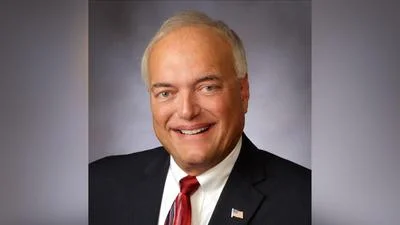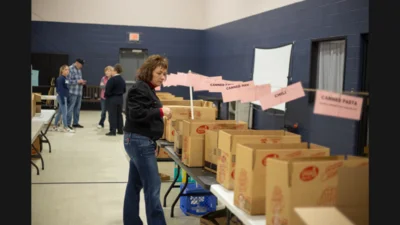TOLEDO – The Alzheimer's Association Northwest Ohio Chapter is hosting several in-person programs throughout February on a variety of topics, including early warning signs of Alzheimer's disease and how to respond to challenging dementia-related behaviors.
The programs are being offered free to the community at the following times and locations:
- Understanding and Responding to Dementia-Related Behaviors, 5-6 p.m. on Wednesday, Feb. 15, at Divine Rehabilitation and Nursing at Shane Hill, 10731 SR-118 in Rockford
- Understanding Alzheimer's and Dementia, 1-2 p.m. on Friday, Feb. 17, at Briar Hill Health Campus, 600 Sterling Dr. in North Baltimore
- Introduction to Alzheimer's, 11 a.m.-12:30 p.m. on Tuesday, Feb. 21, at Mercer County Council on Aging, 217 Riley St. in Celina
- 10 Warning Signs of Alzheimer's, 2-3 p.m. on Tuesday, Feb. 21, at Findlay-Hancock County Public Library, 206 Broadway St. in Findlay
- Effective Communication Strategies, 12-12:30 p.m. on Friday, Feb. 24, at Sylvania YMCA/JCC, 6465 Sylvania Ave. in Sylvania
“These programs answer a variety of questions for families, both those just starting out on the Alzheimer's journey, as well as those who have been living with this disease for a while,” said Pam Myers, program director for the Alzheimer's Association Northwest Ohio and Central Ohio Chapters. “Join one of these programs to learn about how to recognize the warning signs of Alzheimer's disease, how to adjust your communication styles through each stage of the disease and how to address challenging behaviors, in addition to learning general information about the disease.”
During Understanding and Responding to Dementia-Related Behaviors, attendees will learn about common behaviors that can present challenges for caregivers to manage. Join to learn to decode behavioral messages, identify common behavior triggers and learn strategies to help intervene with some of the most common behavioral challenges of Alzheimer’s disease.
Understanding Alzheimer's and Dementia will cover the impact of Alzheimer's; the difference between Alzheimer's and dementia; stages and risk factors; current research and treatments available for some symptoms; and Alzheimer's Association resources.
The Introduction to Alzheimer's program provides a brief overview of Alzheimer's disease, dementia and the Alzheimer's Association services. Topics include the impact of Alzheimer's, risk factors, warning signs and how others can join the fight against the disease.
During 10 Warning Signs of Alzheimer's, participants will learn about the memory, thinking and behavior problems caused by dementia that interfere with daily living. Attend to learn how to recognize common signs of the disease; how to approach someone about memory concerns; the importance of early detection and benefits of a diagnosis; possible tests and assessments for the diagnostic process and Alzheimer's Association resources.
Finally, Effective Communication Strategies teaches new ways for families to connect as people with Alzheimer’s disease and other dementias progress in their journey and the ability to use words is lost. Join to explore how communication takes place when someone has Alzheimer’s, learn to decode the verbal and behavioral messages delivered by someone with dementia and identify strategies to help families connect and communicate at each stage of the disease.
“These programs offer valuable information and support for families living with Alzheimer's disease and dementia,” Myers said. “Please join us at one or more of these programs to learn how the Alzheimer's Association can support you and your loved ones.”
There were 421,000 people caring for 220,000 Ohioans age 65 and older living with Alzheimer's disease in 2021, according to the Alzheimer's Association “2022 Alzheimer's Disease Facts and Figures.” The number of Ohioans living with Alzheimer's is expected to increase to 225,000 by 2025.
Those who are concerned about themselves or a loved one can contact the Alzheimer's Association Northwest Ohio Chapter at 419-537-1999 to schedule a care consultation and be connected with local resources that can help.







